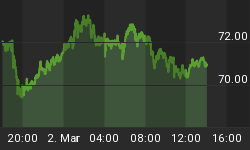As usual, the most interesting part of this morning's policy meeting at the European Central Bank (ECB) was not what happened - another 25bp increase in the refi rate, as expected, taking it to 3.50% - but what was said. Between the accompanying statement from the Governing Council and the subsequent press briefing from Governor Trichet, it is obvious that the overall stance remains hawkish, but also that the end of the tightening cycle is approaching.

The still-hawkish-stance was revealed by the use of such phrases as "our policy continues to be accommodative," "money and credit growth [are] strong and liquidity in the euro area [is] ample," the Council "will monitor very closely all developments," and "looking ahead, acting in a firm and timely manner to ensure price stability in the medium term is warranted."
That Trichet and company are becoming less hawkish was revealed by the absence of a key sentence from past monetary policy statements: "If the ECB's economic assumptions were confirmed, the central bank would continue to withdraw monetary accommodation from the economy." And, Trichet was adamant in his refusal to comment on what the Council anticipates doing in February.
As we noted last week (Daily Global Commentary, November 30: "Euro-zone Data Point to Healthy Economy and Higher Rates in 2007"), recent credit, money supply, and inflation expectations data indicate at least one more rate hike in Q1 - if not February 8, then March 8. Whether there will be a final hike in Q2 will depend on how the Euro-zone economy develops over the next three months. Trichet pointed out today that although the Euro-zone economy is expected to grow "at solid rates around potential" next year, the risk forecast has now shifted from "balanced" to "on the downside."
For the remainder of this month, Euro-zone dates to watch include our two favorite leading indicators, the German Ifo on the 19th and the Belgian business indicator on the 20th, and Euro-zone money supply and credit data on the 29th.
















